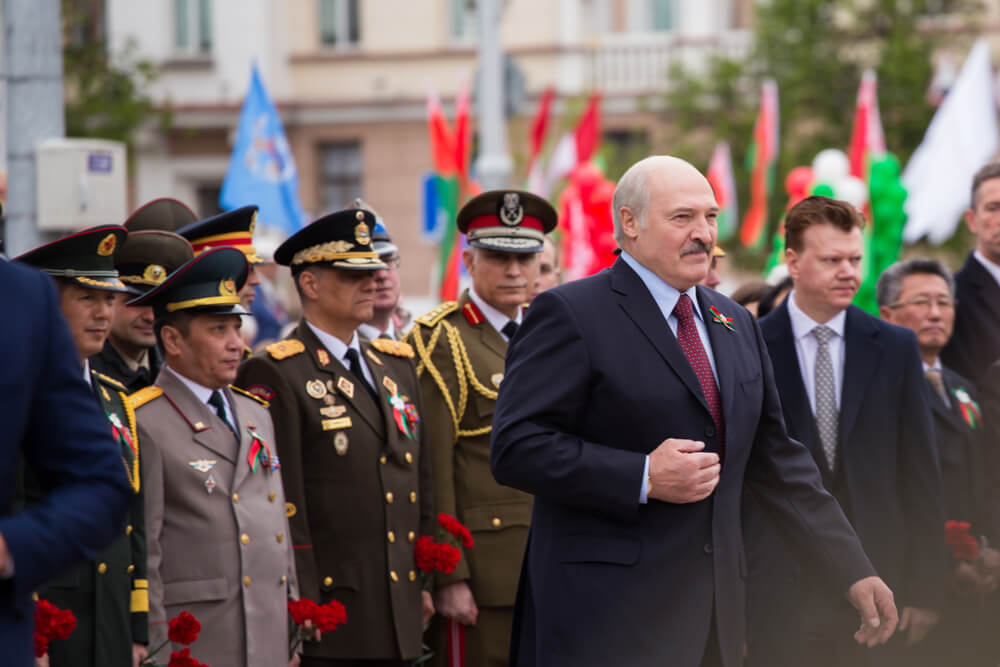The regime in Moscow is dissatisfied with its conclusions, which suggest that the West is in the process of re-evaluating its established rules of the game in international relations.
Any major disruption of the status quo in Russia, particularly among Russia's satellites, could disturb the current consensus between the regime and the Russian elites.
This is why events such as the explosions of pagers belonging to thousands of Hezbollah members and the mass demonstrations in Georgia against Putin's ally and the richest man in the country, the founder of the Georgian Dream party, Bidzina Ivanishvili, are extremely unfavourable for the Kremlin.
Vladimir Putin is used to dealing with the indecisive West, which is afraid of breaking rules or offending him.
Historically, Vladimir Putin thrived on the global stage because he believed that he could cross any line at any time that other democratic leaders could not.
Figuratively speaking, Vladimir Putin is confident that he alone has the privilege of knocking over the chessboard or smashing it on the floor while playing chess with Western leaders—something that other leaders naturally cannot do.
In his paradigm, Vladimir Putin always had a plan "B" that other leaders and their countries could not have because of the shared rules, norms, and values in a democratic world.
Putin now suspects that the West may reassess the rules, and that Western leaders may soon begin to apply, if not his own "gangster's paradise" rules, then at least more comprehensive rules against him.
Increasing paranoia
The operation against Hezbollah members with pagers left Vladimir Putin and his intelligence services in a state of anxiety, given that Russia imports just about everything from abroad.
Russia is not a technologically advanced country. It cannot produce decent kitchen appliances, TVs, mobile phones, computers, cars, etc. Anyone in Russia who values quality avoids purchasing products from domestic producers.
Although Chinese products are now dominant among average Russians, the Russian elites still prefer Western-made vehicles, iPhones, and Western-made home appliances.
Putin has always been suspicious of Western technologies
Putin has always been suspicious of Western technologies. This is why he is not using the internet, nor has he ever used a cell phone while he was president.
He has the Russian-made plane, and he requested the assembly of the Russian-made "Aurus" limousine to minimise the use of Western technologies in his daily life.
The operation against Hezbollah members has sparked paranoia about the potential use of any Western-made device, car, phone, or computer by Western intelligence services.
The establishment's biggest fear is that Western intelligence will start openly tempering with his regime and start removing his allies globally using his or similar to his own "no boundaries" technologies and methods.
Autocratic allies in trouble
Putin's regime is now overly concerned about the forthcoming parliamentary elections in Georgia on October 26.
If Georgian authorities cease being allies of Putin's regime, Russia risks losing not only one of the routes enabling it to circumvent Western sanctions, but this also jeopardises Russia's current military logistics with Iran.
 Putin is frustrated that his authoritarian allies in Georgia, Azerbaijan, Belarus, Venezuela, or Nicaragua have less room to oppress and defeat their opponents in the way they have done so far - Alexander Lukashenko
Putin is frustrated that his authoritarian allies in Georgia, Azerbaijan, Belarus, Venezuela, or Nicaragua have less room to oppress and defeat their opponents in the way they have done so far - Alexander Lukashenko
Georgia has fallen under the rule of Moscow's proxy, Bidzina Ivanishvili, not just because of Soviet heritage or poverty, but also because of the exhaustion from years of waiting for EU membership.
Putin sees mass protests against Ivanishvili's party government as a threat to his own interests and, of course, blames the West for organising them.
He is frustrated that his authoritarian allies in Georgia, Azerbaijan, Belarus, Venezuela, or Nicaragua have less room to oppress and defeat their opponents in the way they have done so far.
Putin fears that the resistance against his autocratic friends will become more open, and that they will encounter methods similar to those involving pagers of Hezbollah members or unconventional actions by the West.